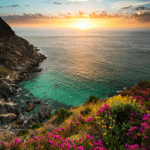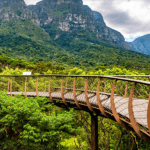With the greatest sporting spectacle ever to be held on African soil a mere 43 days away, everyone’s gees levels should be on the steady upward curve. If not, well then something is quite clearly the matter with you and you should probably get it seen to (it may require lancing). For the rest of us, the World Cup means: seeing the World’s best players (who we watch week in and week out on TV) in the flesh; a month off university/college/school/normality; showing off our country to the entire planet whilst reaping the rewards and, perhaps most importantly, the chance to score a [insert fantasy nationality here].
With so much riding on this bad boy, it’s important that we all know some key things about the big event. And that’s where I come in. So sit back, grab a pretzel, and read up on what is going to be one hell of a June/July!
THE BASICS:
Like so many good things in life, it all starts with a date. The one to remember in this instance is the 11th June which is when the World Cup kicks off with South Africa facing off against Mexico in the opening match at Joburg’s Soccer City. The tournament culminates on the 11th July at the same venue.
TICKETS:
If you haven’t already got tickets for the Cape Town games then best get yourself down to a Fanpark (see below for details) because, to quote Ice-T, “you aint getting’ none”. Tickets for games in Cape Town, Durban and (for the most part) Johannesburg are sold out already. As of today, 40 of the 64 matches are sold out but there is hope – there are still tickets available for games in the interior. To get a hold of them head down to your nearest FNB branch or one of the following venues: FIFA ticketing office at The Spearhead (corner Buitengragt and Strijdom Avenue); Checkers Century City or Checkers Plumstead (Corner Cecil and Kenneth Roads).
FANPARKS:
For people who don’t have tickets, then heading down to one of the official Fanparks is the next best thing! To sum them up in one word: vibe. We have the 2002 Korea/Japan World Cup to thank for the Fanparks inception and the idea was so successful that Germany followed suit in 2006. At the last World Cup, some parks regularly drew in excess of 50 000 festive football fans (try saying that five times fast) all dressed in full colours, singing and making merry. The parks will be well policed and there will also be park and ride facilities available to help with the congestion. It’s highly recommended that you make use of the park and rides. Not only will it save you the stress of never finding a parking but you’ll also be helping the environment which in turn means you can feel lank good about yourself. Kief! What’s that I hear? Will there be beer? Oh yes my friend – there will be beer. And lots of it!
Official Fanparks are being held at: Athlone Stadium; The Grand Parade; The Bellville Velodrome and in Gansbaai.
STALKING:
We here at MCBN like to hook you up with the inside scoop. It’s how we roll. This time is no different – for all you ‘autograph collectors’ we have some high quality intel about not only where teams will be staying but where they will be training too. So get those binoculars out and tint those windows, it’s stalking, err…collecting time!
Team headquarters:
This is a quick round up of where the teams staying in the Western Cape are basing themselves – Brazil: Fairway in Cape Town; Denmark: Simola Hotel in Knysna; France: Pezula Hotel in Knysna; and Japan: Fancourt Estate Hotel in George.
Training:
You may be lucky enough to catch glimpses of teams playing in Cape Town (see stadium fixtures below in the ‘Stadiums’ segment) at the following venues: Newlands Rugby Ground; UWC Soccer Field; Stellenbosch Rugby Ground; UCT Rugby Ground; Bellville Rugby Club and Athlone Stadium.
STADIUMS:
Make no mistake about it, the World Cup is going to leave South Africa with some top quality stadiums. I mean these bad boys are first rate. Imagine if Megan Fox was a stadium, then times that by 10 and you get some sort of vague idea just how awesome our new facilities really are. Ten stadiums have been approved for match hosting – some of them completely new, some having underwent major renovations, and some with only minor ‘tweaks’ having been made. What follows is a brief fact file about each respective stadium, what games it will play host to and a nice shiny picture for you to witness the fitness.
Soccer City
Location: Johannesburg, Gauteng province
Capacity: 94 700 seats
Matches: Opening match: South Africa vs Mexico (11 June), Netherlands vs Denmark (14 June), Argentina vs South Korea (17 June), Brazil vs Côte d’Ivoire (20 June), Ghana vs Germany (23 June), Round of 16 (27 June), Quarter-final (2 July), Final (11 July).
Cost: R3.3 Billion

Soccer City has been enlarged to seat 94 700 for footballs’ showcase event, making it the biggest stadium in Africa. Some significant changes were made to the original two-tiered bowl for the World Cup: the upper tier was extended around the stadium, while an encircling roof was added. The stadium is designed to resemble a calabash and was the brain child of the same architects who bought the world the ‘Bird’s Nest’ stadium for the 2008 Beijing Olympics.
Moses Mabhida Stadium
Location: Durban, KwaZulu-Natal province
Capacity: 70 000 seats
Matches: Germany vs Austria (13 June), Spain vs Switzerland (16 June), Netherlands vs Japan (19 June), Nigeria vs South Korea (22 June), Portugal vs Brazil, Round of 16 (28 June), Semi-final (7 July)
Cost: R3.4 Billion

Moses Mabhida Stadium takes its name from the revered anti-apartheid activist hailing from Kwa Zulu Natal. The stadium is located adjacent to the ABSA Stadium in the Kings Park Sporting Precinct and is a mere five minutes walk from the beach. The stadium boasts an architecturally impressive arch overhead from which tourists may bungee jump off it’s highest point. There is also a cable car and walkway to the top of the arch which means you get to experience one seriously sick panoramic view of Durban.
Cape Town Stadium
Location: Cape Town, Western Cape province
Capacity: 69 070 seats
Matches: Uruguay vs France (11 June), Italy vs Paraguay (14 June), England vs Algeria (18 June), Portugal vs North Korea (21 June), Cameroon vs Netherlands (24 June), Round of 16 (29 June), Quarter-final (3 July), Semi-final (6 July)
Cost: R 4.4 Billion.

The Green Point Stadium in Cape Town has been transformed into a completely new all-weather, multi-purpose venue that is both technologically advanced and environmentally sustainable. Due to the fact the stadium is in a primarily residential area, it boasts state of the art acoustics with the roof being both designed to keep noise in due to its shape and noise reducing cladding. No wonder the Cape Town Stadium was dubbed the ‘African Renaissance’ Stadium.
Free State Stadium
Location: Bloemfontein, Mangaung Municipality, Free State province
Capacity: 48 000 seats
Matches: Japan vs Cameroon (14 June), Greece vs Nigeria (17 June), Slovakia vs Paraguay (20 June), France vs South Africa (22 June), Switzerland vs Honduras (25 June), Round of 16 (27 June).

For the 2010 World Cup, a second tier was added to the main grandstand, which increased the seating capacity to 48,000. New turnstiles were erected, the floodlights upgraded, electronic scoreboards installed and the sound system was revamped.
Peter Mokaba Stadium
Location: Polokwane, Limpopo province
Capacity: 46 000 seats
Matches: Algeria vs Slovenia (13 June), France vs Mexico (17 June), Greece vs Argentina (22 June), Paraguay vs New Zealand (24 June)
Cost: R1.24 Billion
The Peter Mokaba Stadium is the first world class football venue in the soccer mad province of Limpopo. Four two tier stands bring the seating capacity to 46,000. Peter Mokaba Stadium is named after the late Peter Mokaba, an anti-apartheid activist born in the city.
Mbombela Stadium
Location: Nelspruit, Mbombela Municipality, Mpumalanga province
Capacity: 43 500 seats
Matches: Honduras vs Chile (16 June), Italy vs New Zealand (20 June), Australia vs Serbia (23 June), North Korea vs Côte d’Ivoire (25 June)
Cost: R1.05 Billion.

The Mbombela Stadium located, just 7km outside of Nelspruit in Mpumalanga, has been designed to ensure it enjoys a life beyond the 2010 World Cup tournament as an adaptable sports, entertainment and exhibition venue.
*Unfortunately I was unable to find a suitable photograph of this elusive stadium, so this artists impression will have to suffice*
Nelson Mandela Stadium
Location: Port Elizabeth, Nelson Mandela Bay Metro, Eastern Cape
Capacity: 48 000 seats
Matches: South Korea vs Greece (12 June), Côte d’Ivoire vs Portugal (15 June), Germany vs Serbia (18 June), Chile vs Switzerland (21 June), Slovenia vs England (23 June), Round of 16 (26 June), Quarter-final (2 July), Third-place playoff (10 July)
Cost: R2.05 Billion.

The eye-catching roof was specially designed to withstand Port Elizabeth’s notoriously high wind speeds, and the stadium is equipped with state-of-the-art technology and two huge viewing screens.
Ellis Park
Location: Johannesburg, Gauteng province
Capacity: 62 500 seats
Matches: Argentina vs Nigeria (12 June), Brazil vs North Korea (15 June), Slovenia vs USA (18 June), Spain vs Honduras (21 June), Slovakia vs Italy (24 June), Round of 16 (28 June), Quarter-final (3 July)

The Stadium underwent major renovations to fulfil all the FIFA requirements. New upper tiers were added behind each goal, adding an extra 10 000 seats.
Royal Bafokeng
Location: Rustenburg, North West province
Capacity: 45 000 seats
Matches: England vs USA (12 June), New Zealand vs Slovakia (15 June), Ghana vs Australia (19 June), Mexico vs Uruguay (22 June), Denmark vs Japan (24 June), Round of 16 (26 June)

The capacity of the Royal Bafokeng was increased to 45,000 with the construction of two additional rows of seating on the second level. New electronic scoreboards, floodlights and public address system completed the upgrade.
Loftus Versfeld
Location: Pretoria, Tshwane Municipality, Gauteng.
Capacity: 51,762
Matches: Serbia vs Ghana (13 June), South Africa vs Uruguay (15 June), Cameroon vs Denmark (18 June), USA vs Algeria (23 June), Chile vs Spain (25 June)

To qualify for selection as a first and second round venue for the 2010 World Cup the floodlights, sound system and scoreboard at Loftus Versfeld were upgraded and designated media areas were constructed in the lower level of the west stand.
So there you have it folks – you have now reached the end of the MCBN 2010 World Cup crash course. By now you should know enough to not be ‘that quiet oke’ in your mate’s excited World Cup conversations. Remember, like Captain Planet (or that other guy) said – “Knowledge is Power!” So let’s get informed, let’s get amped and let’s get behind South Africa to ensure that this is the best World Cup yet!
source: mycitybynight.co.za
For World Cup Accommodation, Car Hire, and Tours, contact us now [email protected] or +27(0)83 617 3419





